Cambodia Hospital Equipment Project
For less than 1% of its replacement cost, Rotary has been furnishing hospitals in Cambodia with serviceable second hand equipment and training the local staff to maintain and repair the equipment. In parallel with this, we have funded a Consultant Nurse Educator to train the local nurses and doctors on hospital hygiene and infection control. The training and equipment provided has greatly assisted the local doctors in reducing the suffering of the patients and mortality rate and has resulting in the saving of numerous lives.
The Khmer Rouge regime murdered educated people and destroyed the cities in an endeavour to create a utopian agrarian society. At the end of their reign, all the hospitals were destroyed and only twelve doctors were left in Cambodia. Almost 40 years on after the end of the regime, their public hospitals, particularly in regional areas, are very poorly equipped. The GDP per capita in 2016 was $1,078, 16% of China’s, one of the poorest in the world.
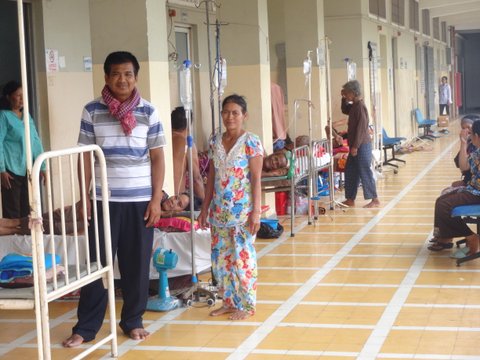
In some cases, patients are even treated on the floor due to a lack of beds, and every square inch of the hospital is often used, due to overcrowding.
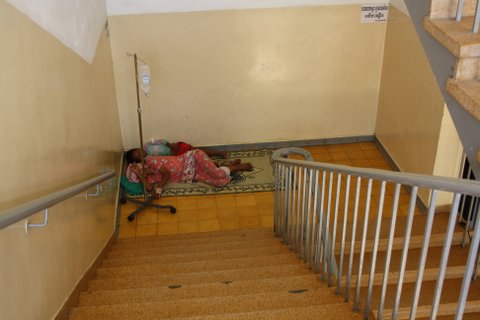
Rotary has been assisting the Cambodian people to rebuild their hospitals, and you can help.
The Cambodia Hospital project began through a long standing friendship between Rotarian Pip Asphar and his school friend, Orthopaedic Surgeon, Dr Tim Keenan. Dr Keenan had been assisting doctors in a number of overseas countries including the Kossamak hospital in Phnom Penh.
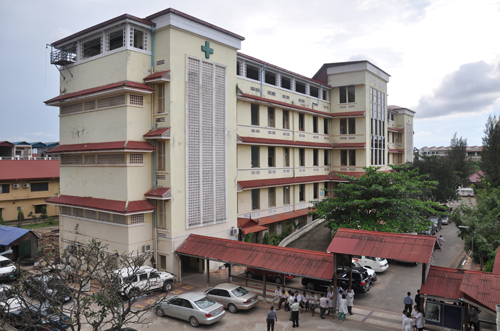
Dr Keenan shared his frustrations with Pip about seeing the Doctors in Cambodia working in very basic conditions with patients lying on mats on the floor and the Doctors were using antiquated equipment.
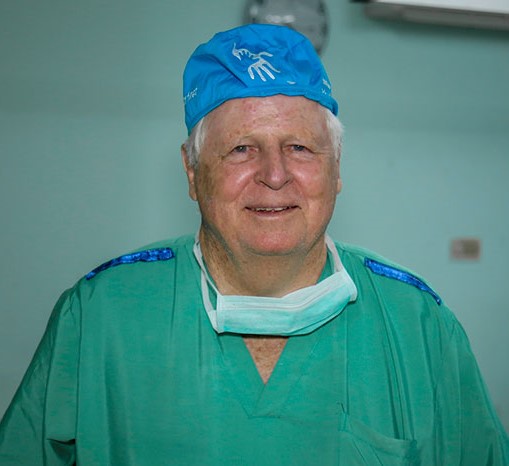
In contrast, the advances in technology and surplus in Australia sees hospital equipment being superseded and eventually taken to the rubbish tip. Pip and Dr Keenan, through their friends, were able to make contact with a range of hospital engineers and others in Perth who were more than happy to organise the donation of surplus equipment from their storerooms to the Rotary Club of Osborne Park, who organised and funded the shipment to Cambodia.
The logistics of the project have seen the Rotary Club of Osborne Park members working very closely together; using their networks, fundraising talents, time and physical strength. The Members’ networks have identified a range of hospitals who were happy to donate their surplus equipment. This has included the St John of God Subiaco, Osborne Park Hospital, Sir Charles Gairdner Hospital, the Mount, Peel Health Campus, Narrogin Hospital and many others.
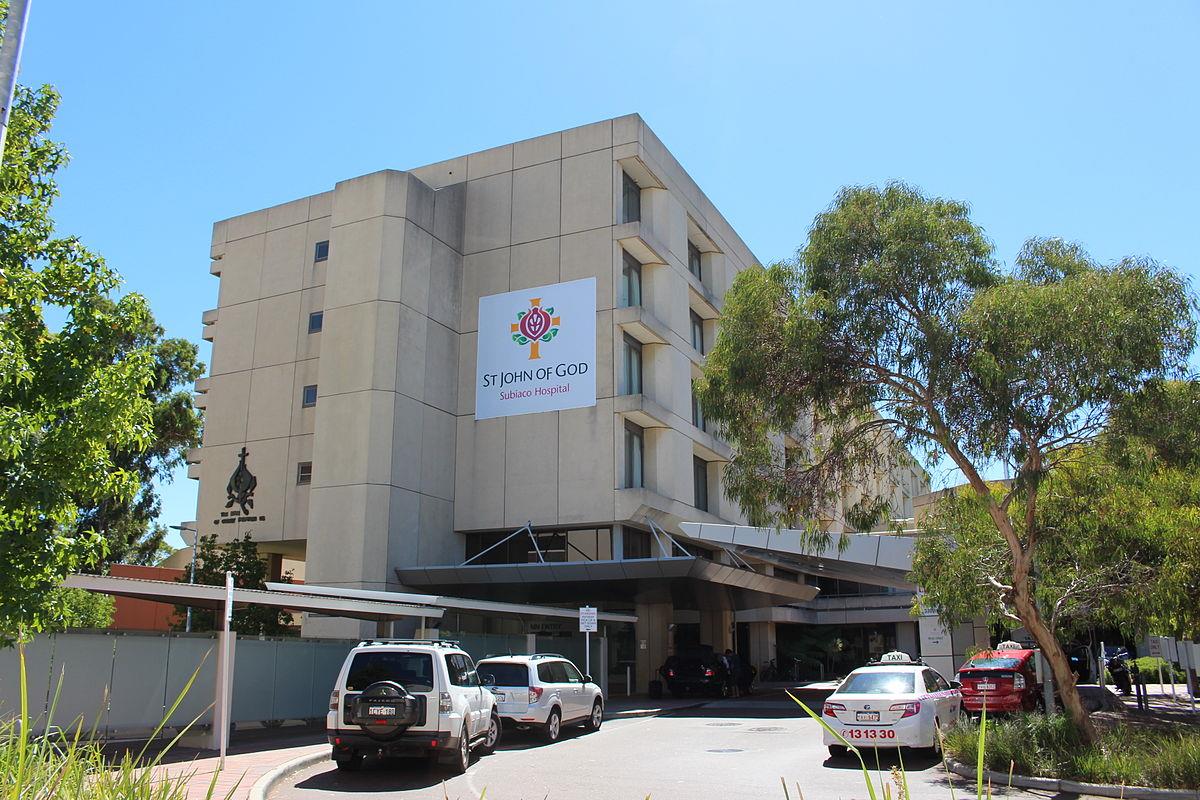
The ongoing collections have been made possible by Rotarians and volunteers using their vehicles and trucks loaned by Budget, to collect and transport the equipment to a static container, which was donated by club member, Peter Stewart. Free storage space was originally provided by Brian Savage, CEO of Shipair. When Brian retired, Sean Carren stepped in to provide us with free storage space at the Goldstar premises in Kewdale.
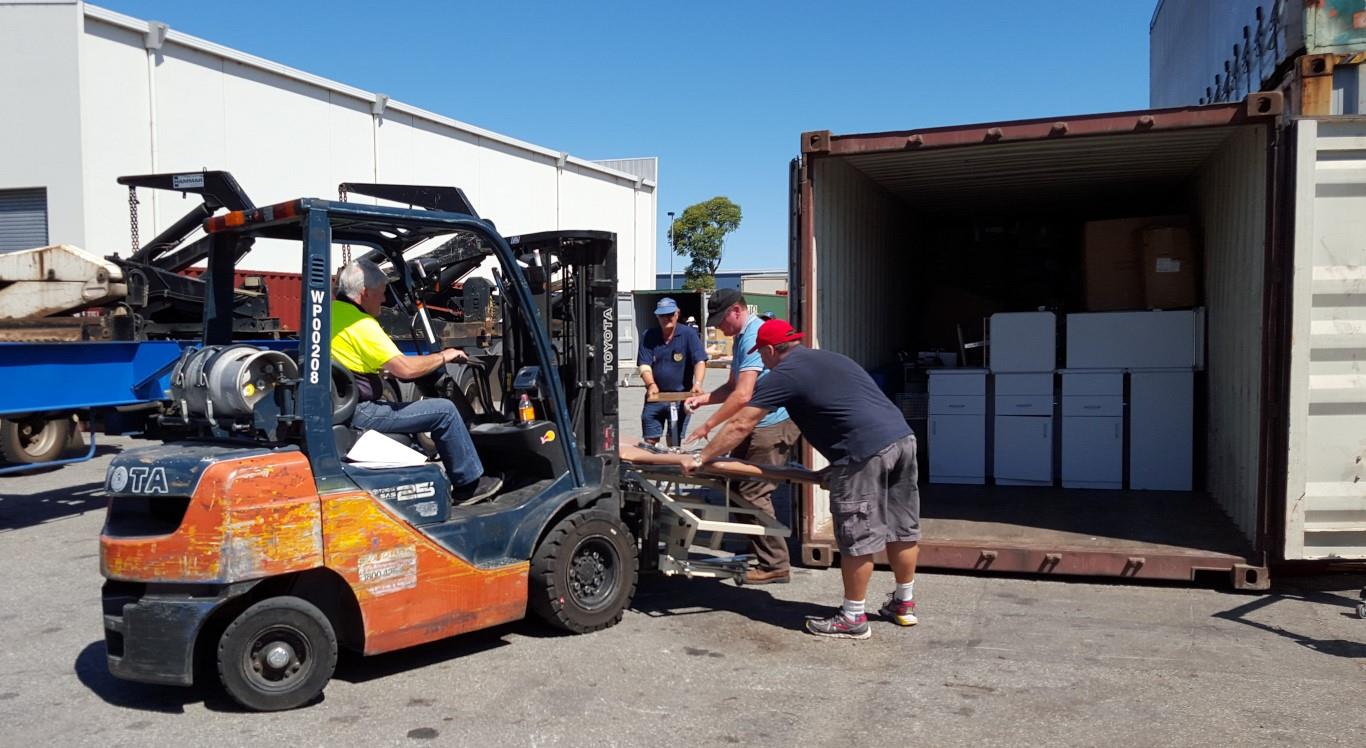
As the equipment became available Rotarians would arrange to collect it and it would be stored in the static container. Once sufficient equipment is collected to fill a container, and enough money had been raised from the fundraising activities, such as sausage sizzles, movie nights, footy tipping, wine sales and all of the other ingenious ways that Rotarians raise funds, they would arrange an empty shipping container to pack the items for shipment.
The upgrading and replacement of Australia’s hospitals that has been occurring over the past few years has resulted in a lot of serviceable second-hand equipment becoming available. Australia’s new hospitals are mostly equipped with all new fittings and many of the beds and other equipment in the old hospitals that are shutting down are being disposed of, resulting in a large volume of used equipment becoming available. Rather than dumping these items, some of them are getting recycled and going to a new home, in less developed countries.
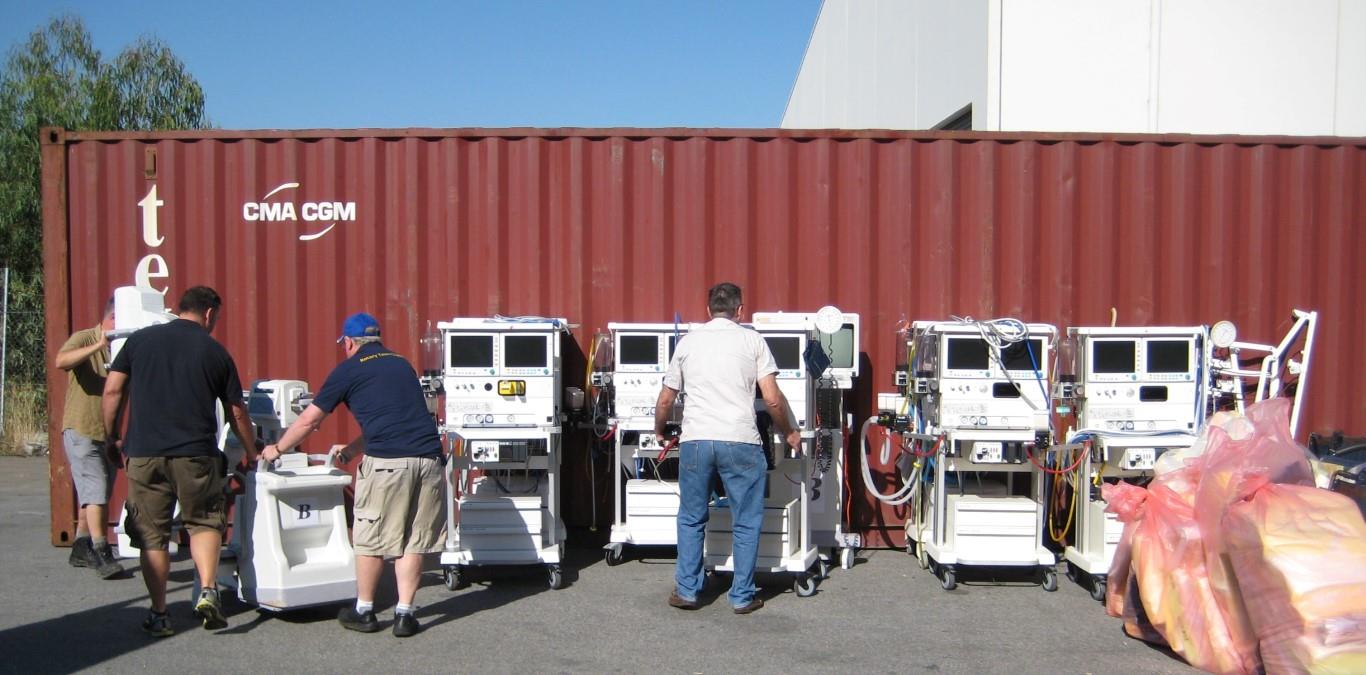
The range of equipment sent so far include: hospital beds and mattresses (which are in great demand in Cambodia), C arms, X ray machines and other orthopaedic equipment, paediatric cribs, wheelchairs, heart monitoring equipment, defibrillators and infusion pumps, theatre beds and theatre lights, ultrasound transducers and the list goes on.

The Club would then organise a “working bee” where Rotary members and volunteers would pack the container with all of the equipment, while making a comprehensive inventory of what equipment was in the container. “Brian Savage, would give us ‘mates rates’ for shipping and the container was on the water,” said Pip Asphar.
The Doctors in Cambodia have organised a system with the Cambodian Army and others who collect the container from the docks, making sure that it is transported safely to the Kossamak Hospital in Phnom Penh, without any further expenses.
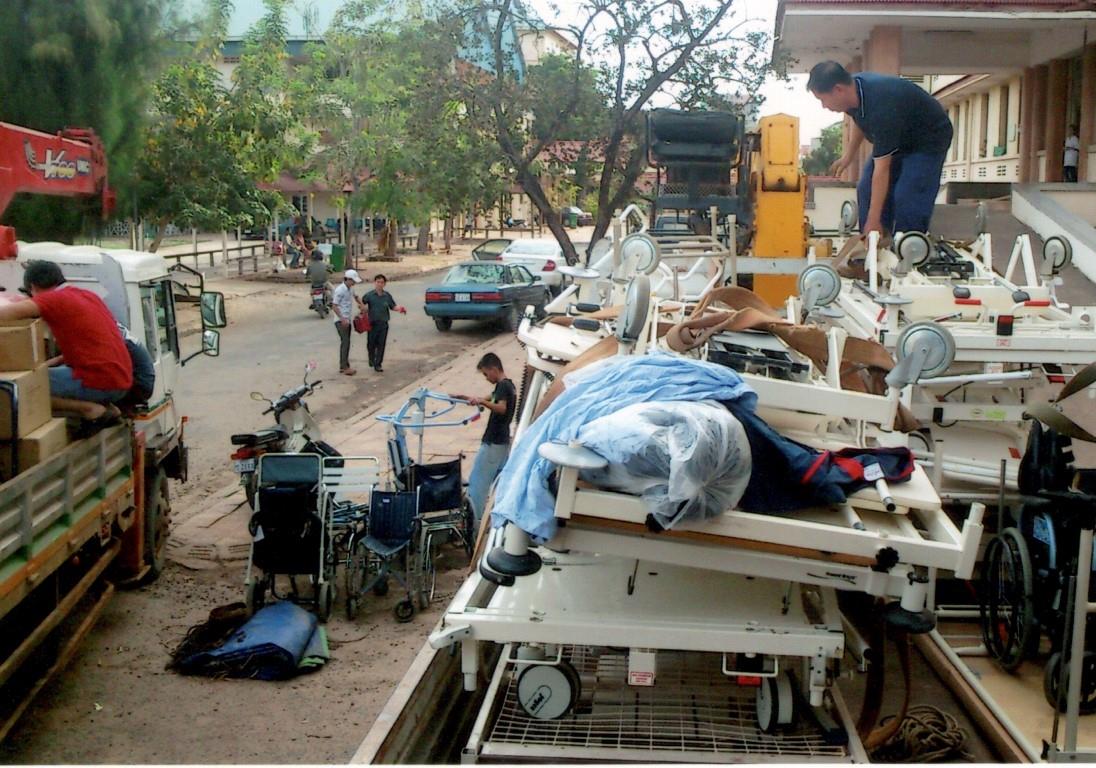
Over the last ten years the systems have improved. Pip said “we have more referrals from other hospitals about equipment they would like to donate”. The Cambodian organisers have now included about twelve regional hospitals in the equipment sharing process. Dr Keenan who spends part of his time in Cambodia, advises us on the needs of the hospitals and works with the locals who arranges the distribution and setup of the equipment in various public hospitals. They have a system where the inventory of equipment is reviewed by the regional hospitals who then directs a truck to the Kossamak Hospital and the equipment is transferred directly to them to avoid double handling and storage.
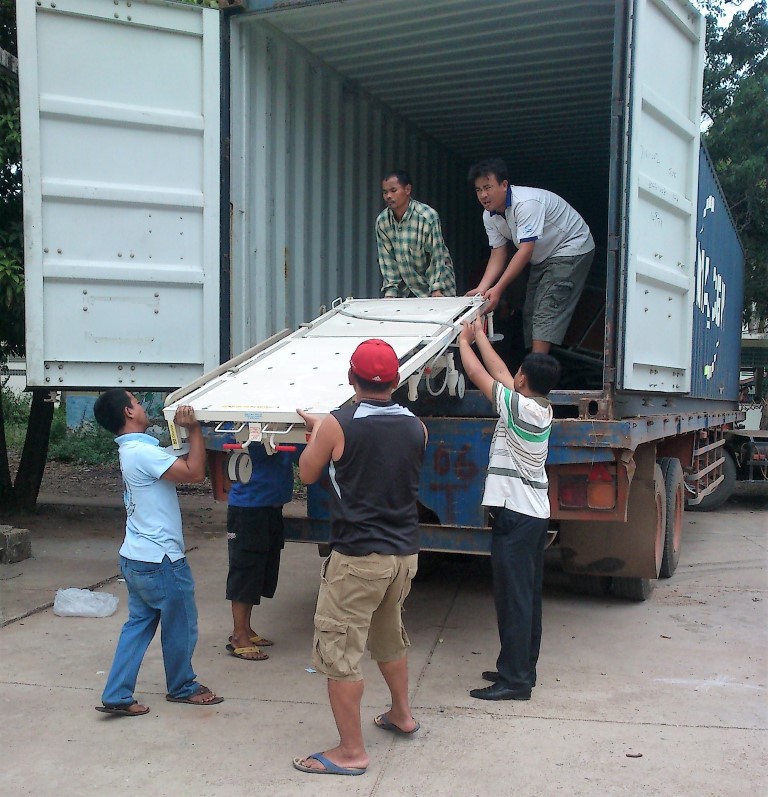
The Club has also developed through Rotary better connections in other states and have sent 60 beds from Brisbane and are hoping to also get equipment from Adelaide shortly. To date a total of 40 containers of equipment with an estimated replacement value of $30 million have been shipped to Cambodia. This has cost the club in excess of $100,000, but it’s definitely worth it. The program is environmentally friendly, avoiding additional land fill in Australia and has benefited the Cambodian people with equipment they could never have afforded.
In some instances, the Cambodian government, are able to construct basic new hospitals, but do not have the funds to outfit them. Much of the equipment recently sent to Cambodia has been used in this manner.
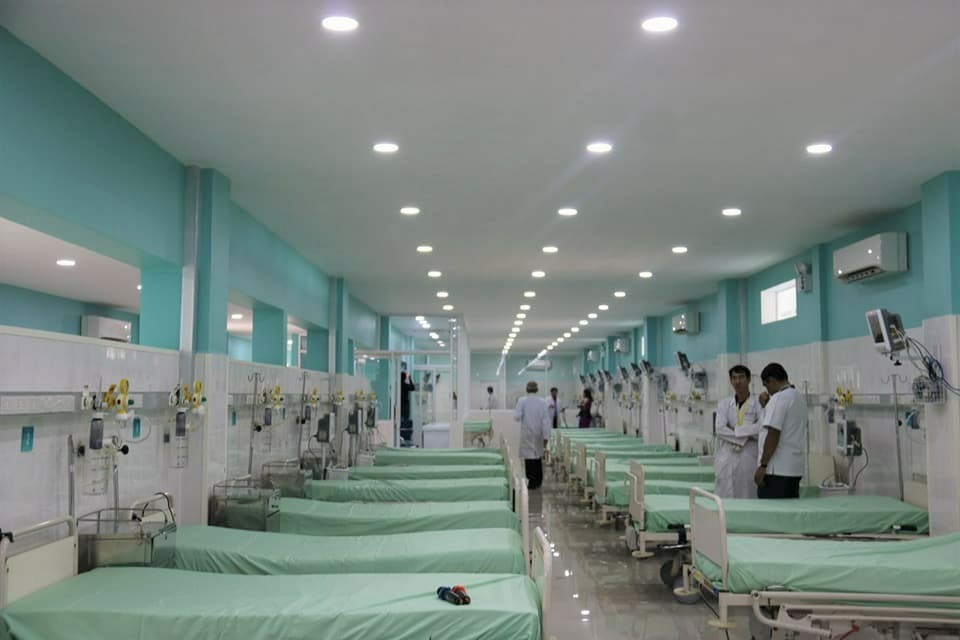
In conjunction with the supply of equipment, a number of Doctors, Nurses and technicians from hospitals in Perth have donated their time and travelled to Cambodia during their annual leave to ensure the equipment is working along with training local hospital staff in using, maintaining and calibrating the equipment.
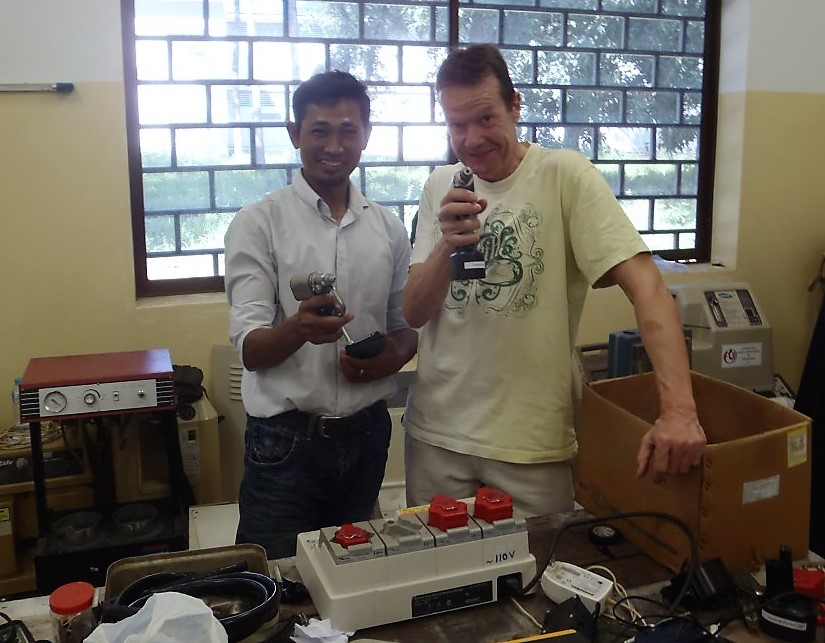
Dr David Nash, the Perioperative Resource Manager at St John of God Hospital Subiaco, has twice been to Cambodia to provide technical support and training.
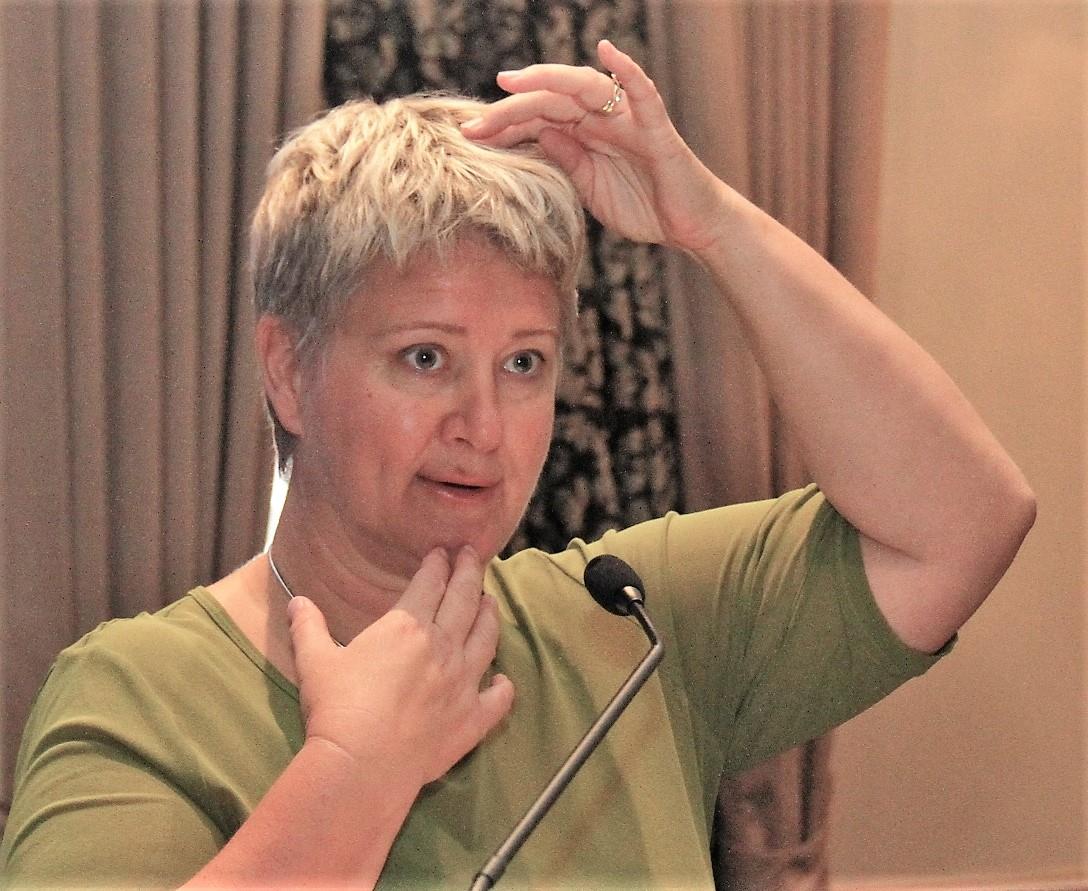
Kareen Dunlop, a Consultant Nurse Educator, has spent several months in Cambodia teaching an infection control course. As a consequence of the lack of understanding of the need for hygiene, up to 40% of the patients that undergo surgery in some hospitals developed an infection. Kareen and others have been supported by Rotary thanks to a generous grant by the Sangora Foundation. Additional information on the work Kareen has been doing can be found here.
On a recent holiday to Cambodia two of the Club members met up with Dr Keenan in Phnom Penh and saw firsthand the results of the work that the club and its hard working members have been doing. “We were blown away by the gratitude and respect the Doctors and staff have for our efforts,” said Brian Hancock. “The equipment is acknowledged as being a donation from Rotary and Perth Hospitals. The patients are receiving a higher quality and standard of medical care as a result of our efforts.” The feedback is that the equipment has been greatly appreciated. “As Rotarians we are helping a severely disadvantaged group of people to have a better quality of life,” said Brian.
“There is still a lot to do,” says Louise Hancock. “There were people lying on the bare bed springs with only a rattan mat. The hospitals are very overcrowded. Whatever we can do to share our good fortune is worthwhile and fulfils our Rotary motto of ‘Service above Self’.”
Help us help the people of Cambodia by donating to this worthy project.
